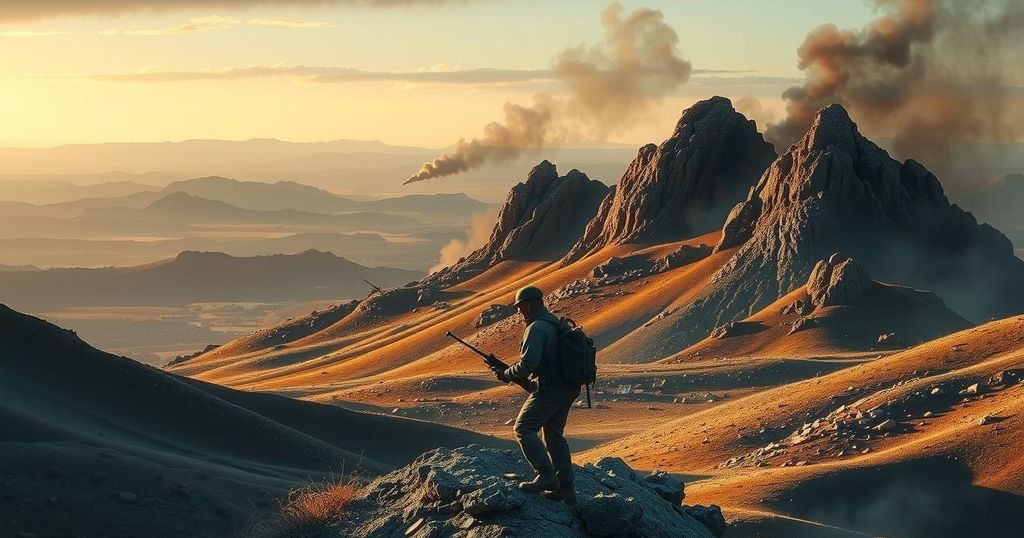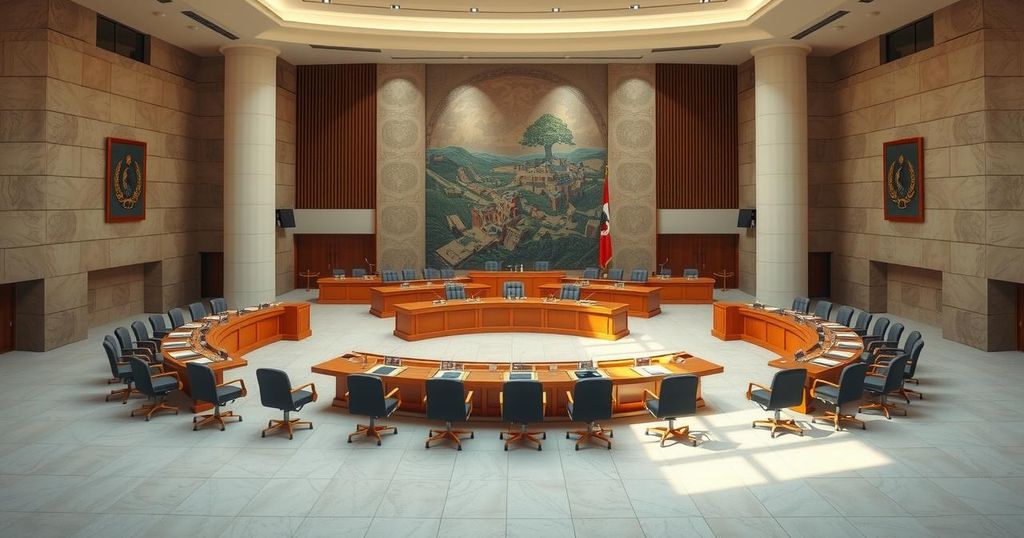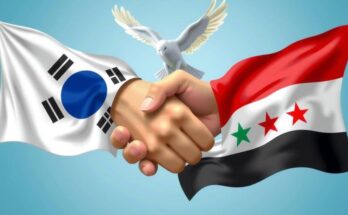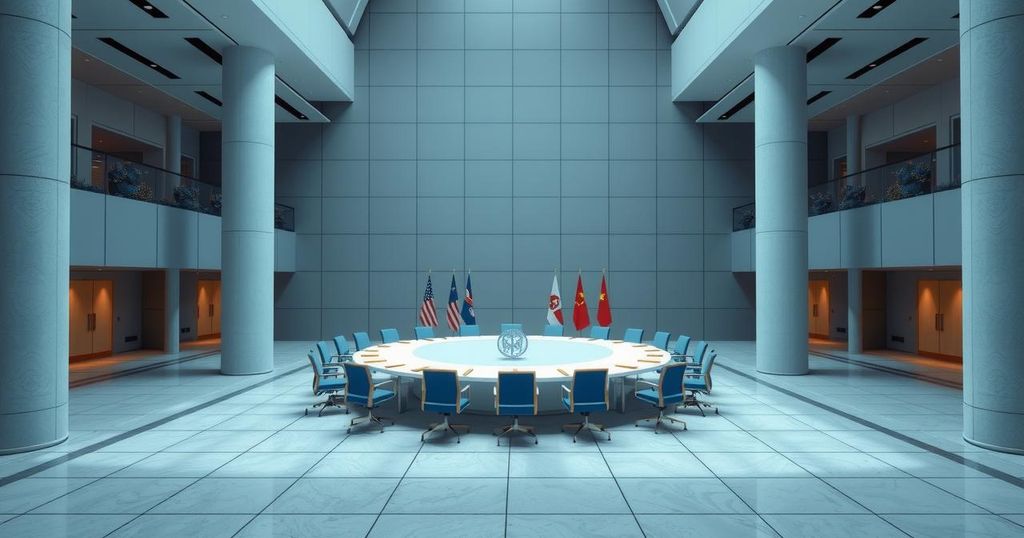Rwanda-backed fighters have advanced significantly in eastern DR Congo, capturing Goma amidst heavy fighting. The M23 armed group’s actions have prompted urgent calls for negotiations amid growing international concerns over a humanitarian crisis. President Tshisekedi declined talks with President Kagame, while the region faces critical humanitarian challenges with food and water shortages and mass displacement of residents.
On Wednesday, Rwanda-backed fighters made significant advancements in eastern DR Congo, taking control of much of Goma following intense combat with Congolese forces. The M23 armed group’s weeks-long offensive has raised urgent calls for negotiations, amid international outrage and warnings of a potential humanitarian disaster. The DR Congo has urged global intervention to halt M23’s progress through its resource-rich eastern region, a conflict rooted partially in the aftermath of the 1994 Rwandan genocide.
Calm briefly returned to Goma on Wednesday, with residents cautiously leaving their homes. “Today we are not afraid,” stated local resident Jean de Dieu. However, the humanitarian situation remains dire, with critical shortages of food and medicine reported, highlighting the pressing need for assistance in the city of one million. Kahindo Sifa, another resident, expressed the struggle for basic needs, saying, “We have to go get water from the lake and we have no medicine.”
Despite mounting international pressure to resolve the conflict, President Felix Tshisekedi of DR Congo declined to engage in talks with his Rwandan counterpart, President Paul Kagame. In a videoconference summit held by the East African Community, member states emphasized the importance of direct dialogue between the DRC and the M23, as well as other armed groups. Angola, which previously facilitated failed negotiations, has requested urgent talks between the Congolese and Rwandan leaders in Luanda.
M23 fighters captured Goma’s airport and other significant areas over the course of the weekend and continued their advance into South Kivu without encountering resistance. The situation has exacerbated an already critical humanitarian crisis, forcing an estimated half a million individuals from their homes just this month. Reports indicate heavy casualties from recent clashes, with more than 100 deaths and numerous injuries, overwhelming local medical facilities.
The power dynamics in Goma have shifted dramatically, with M23 fighters and Rwandan soldiers now in control. Many Congolese soldiers have fled or been captured, and residents reported widespread looting. Student Merdi Kambelenge noted that although the situation seemed to stabilize, the lack of electricity has left the city “cut off from the world.” Meanwhile, citizens in Kinshasa, frustrated by the violence, protested against foreign embassies for perceived inaction.
Global entities including the United Nations, the United States, and the European Union have urged Rwanda to withdraw its forces from the region. Nevertheless, Rwanda’s ambassador addressed the M23’s continuing advances, asserting that they may extend beyond eastern DR Congo, potentially threatening Kinshasa itself. Accusations against Rwanda regarding its military involvement primarily revolve around the exploitation of the region’s mineral resources, allegations that Kigali has consistently denied.
The ongoing conflict in eastern DR Congo, particularly involving the M23 armed group, is deeply rooted in historical tensions following the Rwandan genocide of 1994. The region remains plagued by violence, driven by both local grievances and external influences, notably from Rwanda, which is accused of supporting the M23 to secure access to the area’s mineral wealth. The current humanitarian crisis is exacerbated by food and water shortages, displacing hundreds of thousands, and highlighting the urgent need for international intervention and negotiation.
The situation in eastern DR Congo, marked by escalating violence and humanitarian strife, necessitates immediate attention from both local and international actors. The advances made by M23 fighters, compounded by the humanitarian emergency, call for expedited negotiations and active engagement from the Congolese government and regional leaders. The geopolitical implications of foreign involvement, particularly from Rwanda, further complicate efforts to stabilize the region and restore peace.
Original Source: www.kpvi.com




